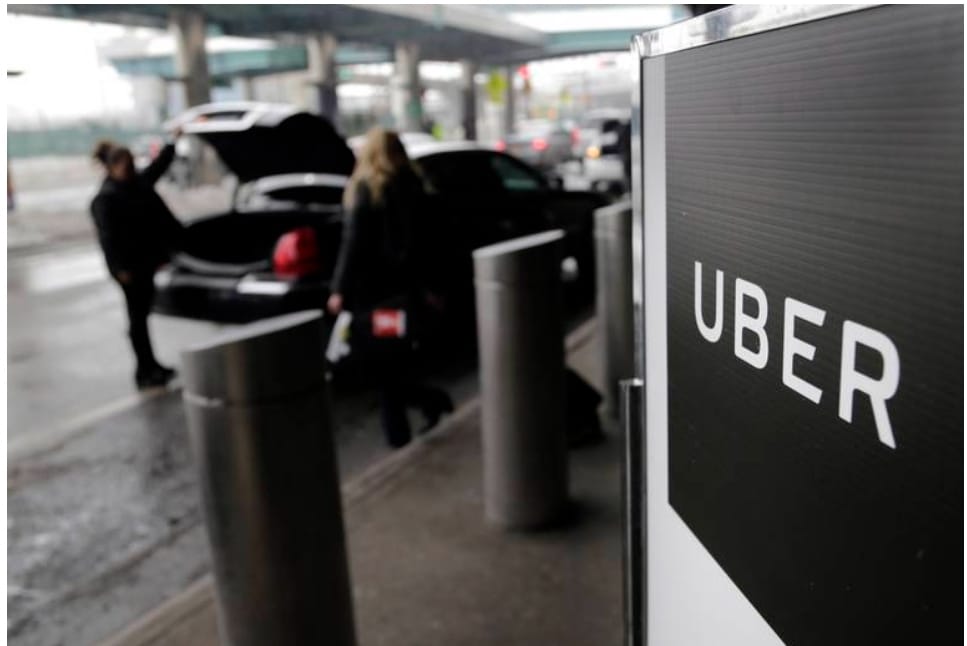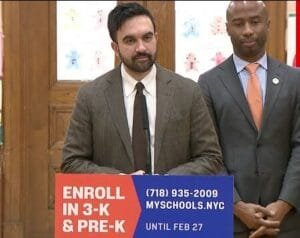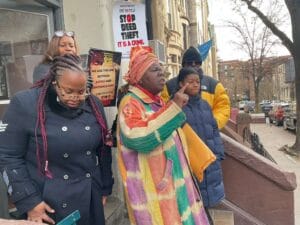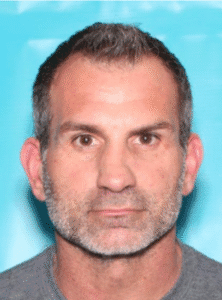Uber asks NYC customers to back exemption from Manhattan congestion pricing tolls

Uber, whose vehicles were shown in a study to have significantly increased traffic in parts of New York City, is putting itself near the head of the line of those asking for a break from Manhattan congestion tolls.
“Say no to increased fares,” read an email Uber sent its riders Thursday. “We need your help. The MTA recently released its initial environmental assessment for congestion pricing… Among the proposals are new tolls as high as $23 per trip during peak hours.”

“The additional double digit fee means you could pay more than $30—in just taxes and fees—for Uber trips that enter Manhattan below 60th street during peak hours,” the email continues, finishing with a link for supporters to sign a petition.
Uber in its email said the company supported the approval of congestion pricing in 2019. But the email said the tolls would be a “double tax” for riders, who have since 2019 paid a $2.75 surcharge for rides that enter Manhattan south of 96th St.
Uber supported congestion pricing when it passed the Legislature in 2019. The tolls are expected to launch in early 2024 pending approval from the federal government.
The company’s support of the idea came on the heels of a 2017 report by transportation analyst Bruce Schaller, which found the growth of Uber, Lyft and other e-hail companies increased traffic congestion in Manhattan, western Queens and western Brooklyn by 7%.
Uber spokesman Josh Gold said the company still supports congestion pricing — but fears its costs fall too much on outer-borough motorists.
Gold said it’s unfair that the MTA’s plan would charge Uber drivers and customers as they enter the zone from upper Manhattan or the other boroughs but not charge drivers and customers as they travel inside the zone — say, from Wall Street to Midtown.
It’s undecided if taxis or for-hire vehicles like Ubers would be charged once per day, or every time they enter the toll zone, which by state law will be below 60th Street in Manhattan. The zone does not include the West Side Highway or FDR Drive.
An environmental assessment the MTA published earlier this month projected tolls for passenger cars entering or leaving the congestion zone would amount to between $9 and $23.
The higher tolls in the $9 to $23 range would be necessary if toll breaks were given to a large number of vehicles, such as delivery trucks, taxis and for-hire vehicles like those operating for Uber.
One MTA proposal would charge a toll of $23 once per day to private cars, motorcycles and commercial vans and three times per day for Ubers and other for-hire vehicles. That plan would exempt yellow taxis entirely.
None of the MTA’s congestion toll proposals would charge Uber riders $30 in fees, as the company hinted in its email.
Uber’s move to gather public support for its lobbying against congestion pricing is akin to its push in 2015 against city legislation supported by then-Mayor Bill de Blasio that would have capped the number of for-hire vehicles permitted to operate on city streets.
The company in July 2015 added a “de Blasio’s Uber” feature to its app, which claimed that if the cap was approved, ait times for an Uber ride would exceed 25 minutes.
De Blasio and the City Council quickly dropped the proposal, and over the next two years the number of cars operating for companies like Uber and Lyft in New York grew from 22,000 to more than 63,000.
By early 2019, more than 86,000 ehail cars were licensed to operate in the city. That figure has since dropped to about 71,000 after city officials authorized more regulation of the industry and the pandemic altered travel patterns across the five boroughs.
The proliferation of cars operating for Uber correlated with the demise of New York City’s yellow taxi industry, which left thousands of cabbies drowning in debt after the values of their medallions that once gave them an exclusive right to pick-ups in the city plummeted from more than $1 million to less than $200,000.
A separate letter sent to Gov. Hochul by Uber, Lyft and other e-hail companies Thursday argued that under congestion pricing, for-hire vehicles should be treated the same as yellow taxis. Drivers of yellow taxis have also called for an exemption.
Since Uber once supported congestion pricing, the company’s push for an exemption “is really disingenuous,” said Bhairavi Desai, head of the Taxi Workers Alliance, which represents taxi medallion owners and for-hire vehicle drivers. “I think Uber lobbied for congestion pricing thinking it would lead to the downfall of the yellow cab industry.”














